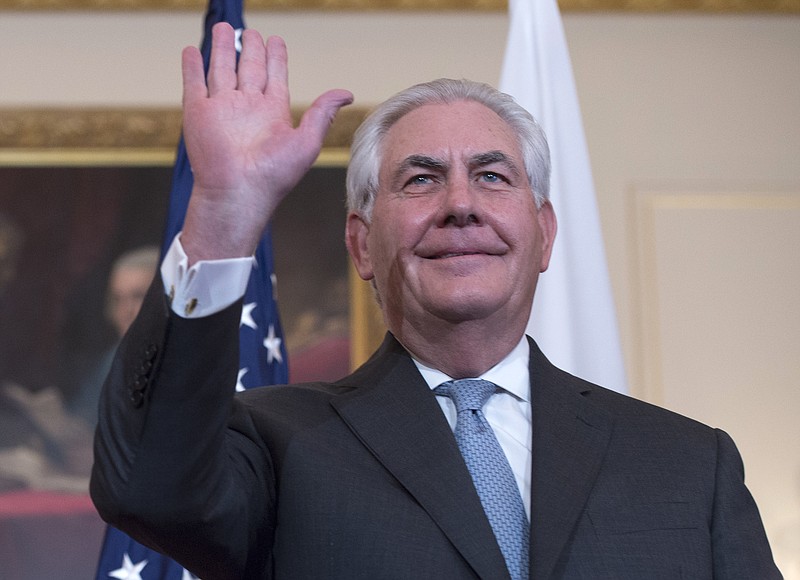WASHINGTON (AP) - Secretary of State Rex Tillerson has agreed in principle to a White House proposal to slash foreign aid and diplomatic spending by 37 percent, but wants to spread it out over three years rather than in one dramatic cut.
Officials familiar with Tillerson's response to the proposal from the Office of Management and Budget said Friday that Tillerson suggested the reductions to the State Department and U.S. Agency for International Development begin with a 20-percent cut in the next budget year. Tillerson sent his response to OMB director Mick Mulvaney on Thursday, according to the officials who spoke on condition of anonymity because they were not authorized to discuss the budget publicly until it is presented to Congress.
Tillerson likened his approach to that of landing an airplane safely: a gradual descent rather than a precipitous one-time drop that would have far-reaching consequences for policy as well as political and human costs, according to the officials. The officials cautioned that Tillerson's response was the beginning of a discussion with the OMB that could lead to a different figure, which would then go to Congress, where more changes could emerge. Some lawmakers, including senior Republicans, as well as current and former military commanders strongly object to steep cuts in foreign aid and diplomacy.
The combined State Department/USAID budget this year was $50.1 billion, a little more than 1 percent of the total federal budget. The White House is looking for massive savings across the non-defense portions of the total budget to offset a proposed $54 billion increase in military spending.
One official said Tillerson agreed with "an aggressive scrubbing of the budget" with an eye toward prioritizing programs based on specific achievable results rather than theoretical goals. The official said Tillerson, the former CEO of Exxon Mobil, was seeking a budget that outlines "a clearer vision of what of the end product is."
Even carried out over three years, a 37-percent cut to the foreign affairs budget would be felt deeply across the State Department and foreign development assistance, which is largely overseen by USAID. It would likely require the wholesale elimination of some programs as well as staffing cuts.
One suggestion, which was not contained in Tillerson's response but is under consideration, would be to bring USAID, now a semi-autonomous operation, entirely under the auspices of the State Department to eliminate redundancies between the two agencies. This would reduce USAID's front and administrative offices by combining those functions with those of regional assistant secretaries of state.
The OMB proposal, which was sent Monday to the State Department, raised concerns about America's ability to promote its values around the world and avert wars, rather than fight them. Sen. Marco Rubio, R-Fla., Sen. Lindsey Graham, R-S.C., and Senate Majority Leader Mitch McConnell, R-Ky., were among several Republicans voicing objections.
David Petraeus, who headed the CIA after commanding U.S. forces in Iraq and Afghanistan, and a group of more than 100 national security experts echoed that sentiment, calling diplomacy "critical to keeping America safe."
The OMB outline suggested ways to achieve savings, but the officials wouldn't discuss those details.
Officials said a 37 percent cut would eliminate programs and likely cause staff reductions, including security contractors at diplomatic missions, a matter that became only more sensitive after the deadly 2012 attack on a U.S. compound in Benghazi, Libya. They said some overseas facilities and offices might have to be closed.
The State Department had already been bracing for budget cuts under the Trump administration. Many of its bureaus went through exercises to see how they could function with 20 percent or 25 percent less money, officials said. Buyouts could help reduce the size of the diplomatic corps along with early retirements and layoffs, they found. Eliminating special envoy and special representative positions could also yield savings. Only 11 of 32 special envoy or representative posts that existed during the Obama administration are currently filled.
USAID's operations may be even more precarious. Numerous agency initiatives, including those dealing with global health, climate change and women's issues, could be cut if the proposal is adopted, the officials said. They said they expected most USAID funding to be cut.
